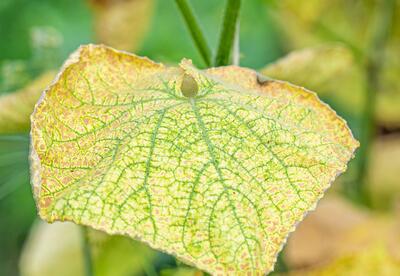
Figure 1: InvictDetect Plus™ ImmunoStrips®
--- FOR IMMEDIATE RELEASE ---
Agdia, Inc. (Elkhart, IN) is happy to announce their commercialization of a rapid and user-friendly assay, on their ImmunoStrip® platform, for the identification of Solenopsis invicta, the red imported fire ant, Solenopsis richteri, the black imported fire ant, and the interspecific hybrid.
Imported fire ants (IFA) are highly invasive species that were introduced into the U.S. from South America in the early part of the 20th century. It is believed that both species, Solenopsis invicta, the red imported fire ant, and Solenopsis richteri, the black imported fire ant, entered through the port of Mobile, AL in soil used as ballast in cargo ships. Since their introduction, IFA have spread to 15 states and Puerto Rico, infesting more than 367,000,000 acres. Solenopsis invicta is found from Virginia to Florida and west to Texas with introductions in New Mexico and California, while S. richteri is isolated to a relatively small geographic area in northeastern Mississippi, northwestern Alabama and southwestern Tennessee. Furthermore, the interspecific hybrid, S. invicta x richteri can be found at points of contact between the two species. In addition to the U.S., S. invicta has spread to several Caribbean islands, Australia, New Zealand and throughout Asia. Predictive models based on average annual temperature, precipitation, geophysical characteristics and human factors revealed nearly 50% of the planet’s surface as potential habitat for S. invicta.
Both species of IFA have significant deleterious impacts on agriculture through crop injury, equipment and infrastructure damage, and livestock injury. The USDA estimates management and repair of damage caused by IFA costs $6 billion annually, in the U.S. alone. Furthermore, as with many invasive species, IFA poses a significant ecological threat to multiple native species, including insects, mammals, and ground-nesting birds and reptiles. In addition to agricultural and environmental concerns, both species are potential threats to public health. These insects are highly aggressive, attacking and stinging perceived threats collectively. Solenopsis venom contains alkaloids known as piperidines that produce a painful burning sensation upon envenomation. Thereafter, blisters form at the site of stings and can become infected. Furthermore, protein components of the venom are potentially toxic, inducing anaphylaxis in susceptible individuals.
Eradication efforts for IFA were implemented on a national scale in the U.S. starting in the 1950’s. Since then, several programs utilizing multiple residual insecticides have proven ineffective at impeding the spread of these invasive arthropods. Many of the chemicals used were spread across wide acreages and were toxic to non-target fauna, killing indiscriminately. The absence of natural predators and competition paved the way for re-infestations and advancement. It is now understood that widespread eradication programs are fruitless, and the mindset has shifted to containment, assisted by a federal quarantine and localized chemical treatments.
Imported fire ants are spread by humans through the movement of infested nursey stock, baled hay and straw, grass sod, bulk soil and used soil-moving equipment. In an effort to limit human-assisted spread of IFA, the USDA enacted a federal quarantine which mandates regular inspections of regulated items moving from quarantined areas to outside destinations. This quarantine is enforced by the Animal and Plant Health Inspection Service (APHIS). Rapid identification of IFA to species level is crucial to the success of the federal quarantine and the timely delivery of regulated items free of these invasive ants. Unfortunately, visual identification of IFA is difficult, requiring samples be sent to an expert for morphological identification, thus delaying release of regulated cargo. Due to this, a rapid and user-friendly field test for the identification of IFA is needed.
Through a collaborative effort, USDA-APHIS, USDA-ARS (Agricultural Research Service) and Agdia Inc. have developed a lateral flow assay, InvictDetect Plus™, which identifies S. invicta, S. richteri and the S. invicta x richteri hybrid, discriminating them from native ant species excluded from the federal quarantine. This product is available on Agdia’s ImmunoStrip® platform and can be implemented in the field or the lab by individuals having no expertise in ant morphology or taxonomy. Assay protocol is relatively simple and includes 1) collection of five (5) suspect worker ants, 2) maceration of five ants in 100 µL of AEB2 extraction buffer in 1.5 mL tube, 3) placement of test strip in tube with ant extract and 4) interpretation of results. Positive samples might show results within ten minutes; nevertheless, we recommend allowing the assay to run for 30 minutes before final determination of test result is made.
InvictDetect Plus™ provides a new tool for use in the ongoing effort to minimize the human-assisted spread of IFA. Furthermore, Agdia endeavors to simplify the identification of IFA for regulators and all those who rely on the timely delivery of regulated items as means of income.
About Agdia
A leading provider of diagnostic solutions for agriculture, Agdia, Inc. has been serving plant breeders, propagators, growers, universities, regulatory organizations and private testing laboratories since 1981. The company offers a comprehensive portfolio of validated, easy-to-use diagnostics for identifying plant pathogens, plant hormones, and transgenic traits. Moreover, Agdia operates an ISO accredited, in-house, testing services laboratory. Agdia’s quality management system is ISO 9001:2015 certified and their Testing Services Laboratory is ISO 17025:2017 accredited. Visit the company’s website at www.agdia.com, e-mail info@agdia.com, phone 1-574-264-2615 (toll-free 800-622-4342) or fax 1-574-264-2153.
# # #





